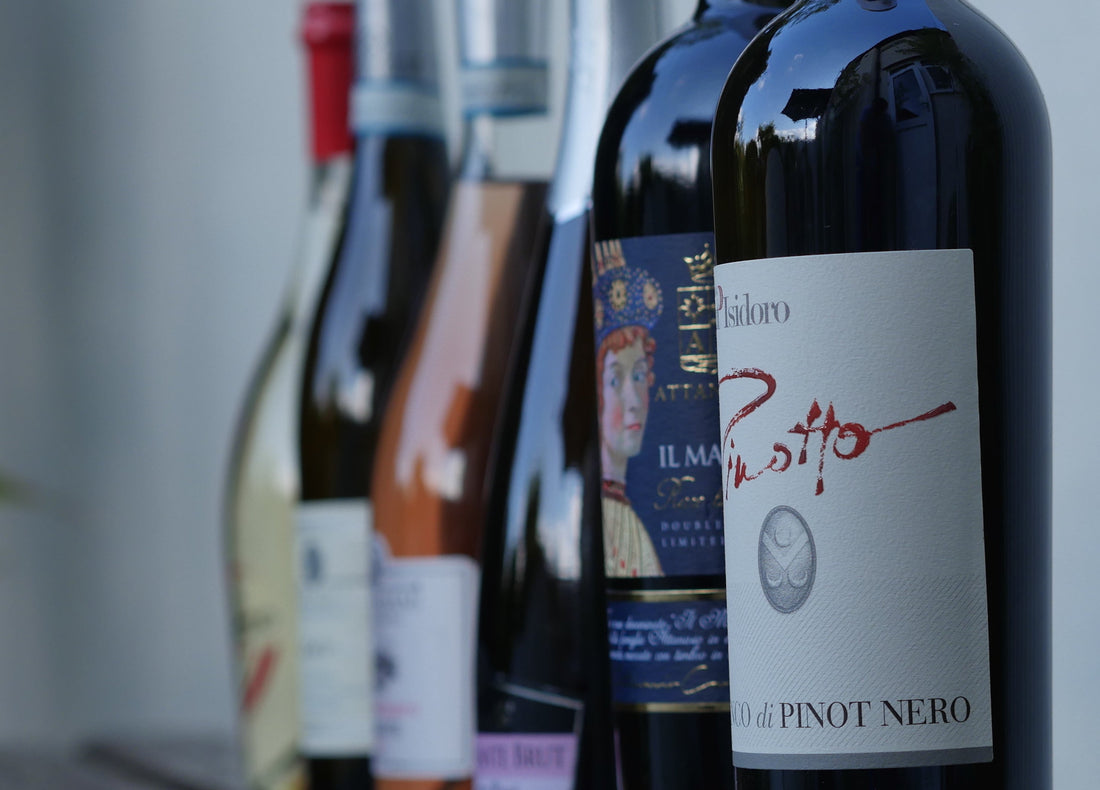
Is low-alcohol wine a healthy option?
Share
Hello Infinity Wine lovers!
I'm not sure why; maybe we've all decided to take a bit better care of ourselves after lockdown, but more and more, I'm getting asked the question, "Is low-alcohol wine a healthy option?"
Let me start by saying, at Infinity Wines we sell premium wines made using organic methods with minimal intervention in the winery to produce wines as naturally as possible whilst tasting lovely. Now, as much as I love wine, I know you can't drink it all the time, so back to the question — is low-alcohol wine a healthy option if you don't want to drink traditional wine?
I'm a wine merchant, not a doctor or a scientist. In this article, I've attempted to provide a balanced approach to the subject and then pitch in with my personal view at the end. As always, you need to decide what is best for you.
Alright, the first thing that struck me was when I was searching around the Internet, any articles written about no and low-alcohol wine seem to have some sort of agenda. If a company is trying to sell low-alcohol wines, then the pieces are (obviously!) very positive which means there are very few non-biased articles about this sort of drink.
For instance, an article from Pierre Zero Wines summed up the benefits of low-alcohol wines very well:
Non-alcoholic red wine contains an equivalent level of polyphenols to alcoholic red wine. Polyphenols are antioxidants that reduce blood pressure and prevent cancerous, inflammatory, and neurodegenerative illnesses. It also has positive effects on hypertension and is rich in anti-ageing properties.
If you are calorie counting, non-alcoholic wine contains three times fewer calories than regular wine. It has 15 to 30 kilocalories per decilitre compared to 70 to 80 for the alcoholic version.
And if you are sensitive to sulphites, another benefit of non-alcoholic wine is they contain almost no sulphites due to the dealcoholisation process.
Here is a link to the full article in case you want to read more: https://www.pierre-zero.com/en/why-alcohol-free-wines/non-alcoholic-wine-is-good-for-your-health
Sounds good, but what are you actually drinking?
Wine is defined as “an alcoholic beverage made with the fermented juice of grapes.” So if you take the alcohol out of wine — is it still wine?
Strictly speaking, non-alcoholic wine shouldn’t be called wine. Because alcohol is a highly regulated industry, there is no such thing as 'low- or no-alcohol wine' legally. Wine needs to have a minimum alcohol level of 8% ABV unless a specific exemption exists (for instance, Moscato d'Asti, which is very high in sugar). Otherwise, it must be called ‘made-wine’ or a 'wine-based drink'. These drinks technically aren’t wine anymore.
Already we can see that there are lots of things going on behind the scenes when it comes to non-alcoholic wine-based drinks. On the one hand, they look pretty good, but on the other, the name is misleading.
Which brings me to the big question — how is it made? And this is where I have probably the biggest concern when considering if non-alcohol wine is indeed a healthy option.
For me, the key point here is that makers of no and low-alcohol wine generally purchase poor-quality wine in bulk that is an excess of what the producer can sell on the open market. Wine of any quality will be sold, not put through the dealcoholisation process.
Three main methods are used to remove alcohol from wine, all of which involve highly technical equipment and processes:
Vacuum distillation sees alcohol removed at a relatively low temperature (25°C-30°C), with aromatic flavourings blended back in afterwards.
Spinning cone columns are very similar but involve repeated low-temperature evaporation and condensation using inverted cones and centrifugal force to separate out the alcohol and other elements of the wine, which are then blended back together afterwards.
A sophisticated filtration system separates the alcohol and other elements based on different molecular sizes before blending back.
Information has been taken from: https://www.decanter.com/learn/how-is-no-alcohol-wine-made-ask-decanter-429993/
Only a few manufacturing sites can do this sort of process, one of the largest being in Germany. The wine is shipped there from producers in bulk tanks for the dealcoholisation. After the alcohol is removed, the drink has little or no flavour, so flavourings such as concentrated grape must are added to replicate the mouthfeel of alcohol but this increases the sugar levels significantly. Some producers blend in other flavourings or botanicals to create something similar to the taste of traditional wine without increasing the sugar levels in order to promote it as a healthy low-sugar product.
This is the biggest red flag for me. I doubt anything that is this highly processed can be considered healthy. Those of us who care what we put in our bodies, and try to avoid highly processed food, should find no and low-alcohol wines counter-intuitive. If you want to eat organic, are interested in the provenance of your food, concerned about the environment and food being sourced locally, I doubt alcohol-free wine will be the right option for you.
Even though I love wine, there are sometimes I’ll be with my friends and need to drive home but still want to feel as though I’m drinking with them and like to have a no or low alcohol alternative to sugary soft drinks. My go-to low-alcohol beverage is called Mary served with a good tonic and a slice of lemon. https://drink-mary.com/.
To wrap up, if you are drinking no or low-alcoholic wine because you like the taste, great; but if your choice is driven by health reasons, then my advice would be to drink something else. Instead, choose a product created to be no or low-alcohol made with natural ingredients, not something highly processed trying to be something it isn’t.
If you enjoyed this article and have a question about wine or the industry in general, please let me know. – Dave
